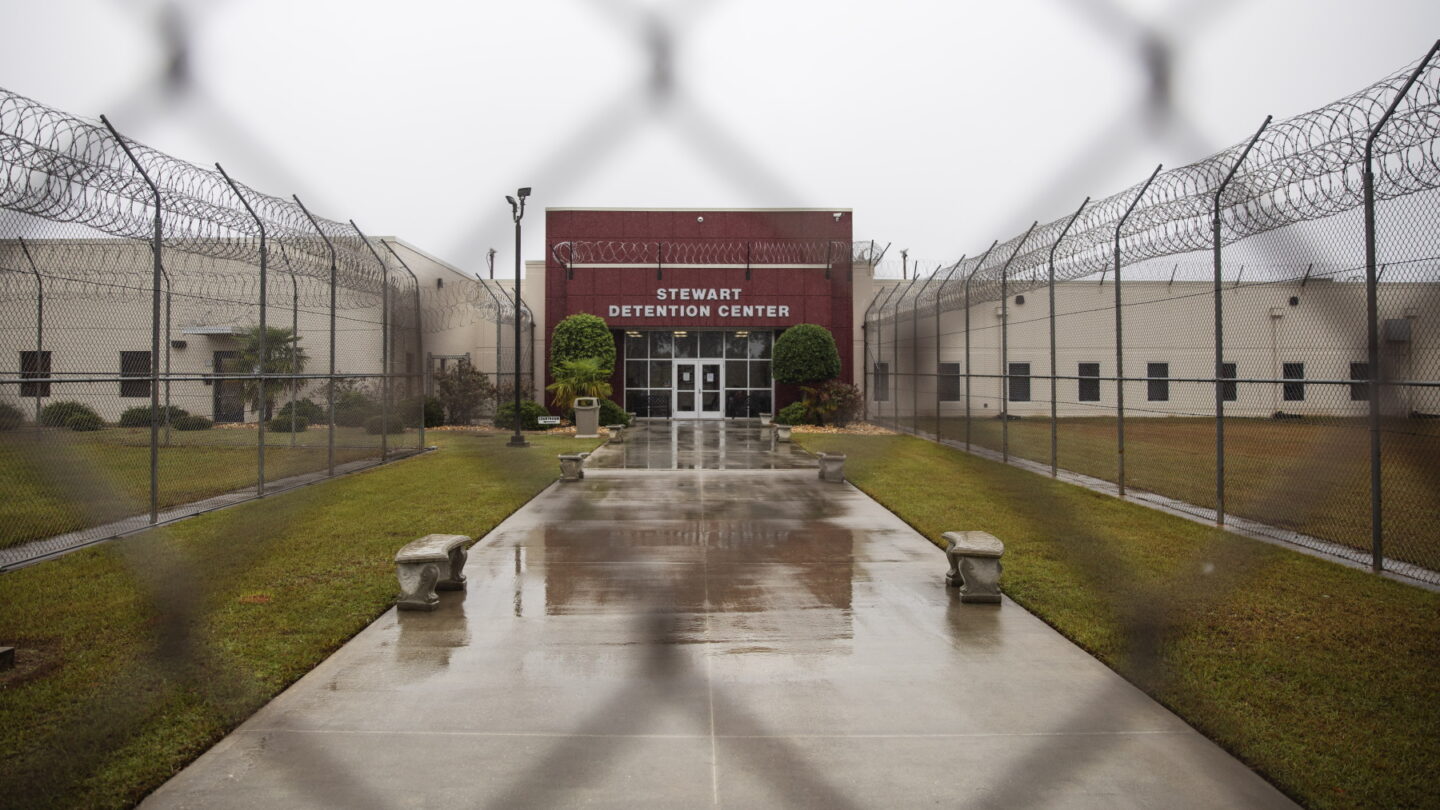Detained immigrants in South Georgia petition government for better conditions

More than 200 immigrants detained in South Georgia’s Stewart Detention Center are petitioning the federal government for better living conditions.
This year alone, the Immigration and Customs Enforcement detention facility in Lumpkin, Georgia, has faced several complaints ranging from immigrants flagging difficulties accessing timely physical and mental health care and enduring poor living conditions to advocates demanding answers for immigrant deaths in the facility.
The petition alleges mold in pipes causing eye irritation, spoiled and burnt food causing food poisoning, several days without hot water, and difficulty accessing medical care.
In addition to the petition, the nonprofit Freedom for Immigrants filed a federal civil rights complaint to the Department of Homeland Security on behalf of Sopheak Pal, who is currently detained at Stewart and contacted the nonprofit through its detention hotline.
The complaint further alleges the facility is in violation of national detention standards.
“When you look at some of the issues they’re advocating for,” said Jeff Migliozzi, who works for the nonprofit.
“It is as simple as having food that is edible and not moldy. It’s as simple as having hot water to take a warm shower or to have hot water in the kitchen for sanitary purposes.”
Migliozzi said Pal and the other petition signers face retaliation for speaking publicly about these conditions, but there could be strength in numbers as more detained immigrants join the petitioners.
Private prison company CoreCivic runs Stewart Detention Center.
In a statement, director of public affairs Ryan Gustin refuted the claims, stating the facility is inspected every week for things like mold in the facilities and that the cafeteria passed a random health inspection from the state in October. He also stated the company strives to provide adequate, 24/7 medical coverage.
These are not the first allegations of substandard living conditions at Stewart.
A federal report released this year by NPR showed in 2017, experts hired by the federal government found Stewart not only did not meet all the standards for medical care, but was also one of the dirtiest medical facilities the experts had seen.
“People all across the country consistently report really dehumanizing conditions that are ultimately designed to make people give up on their cases and elect to self-deport,” said Migliozzi.
“Being inside the detention center for another day is sometimes too much to bear.”








